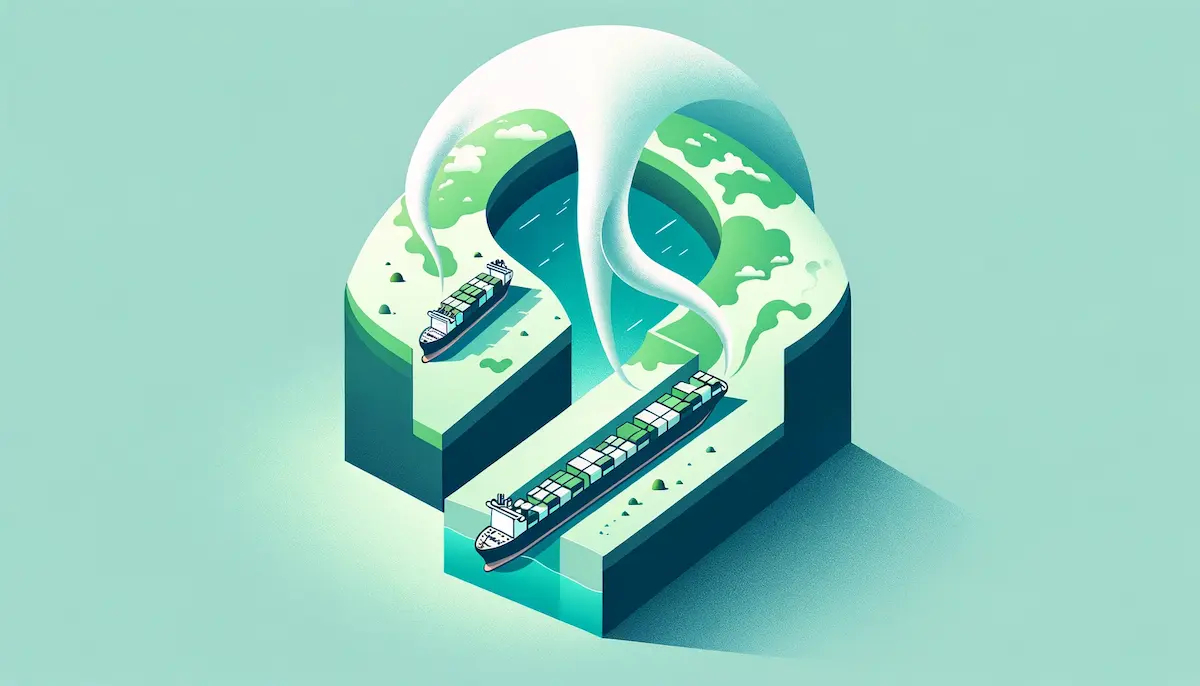
In global trade, the routes chosen by cargo ships hold significant environmental and economic repercussions especially involving the Panama and Suez Canals.
An article by The Time Magazine exemplifies this through the journey of a cargo ship from Rotterdam to China, revealing a stark contrast in carbon footprints. Traversing via the Suez Canal, the ship typically generates 7,841 metric tons of CO2.
However, a detour around South Africa’s Cape of Good Hope propels this figure to 10,360 tons—a surge of 2,519 tons. To put this into perspective, it’s akin to igniting 13.9 rail cars worth of coal. Counterbalancing this extra carbon would necessitate the growth of 41,652 tree seedlings over a decade.
As per the article, the Suez Canal, a critical artery in maritime commerce, witnesses an average of 68 ships passing daily. Yet, the unfolding Red Sea Crisis has rerouted approximately 95% of this traffic via the Cape of Good Hope in Africa, resulting in a daily increase of 162,727 tons in CO2 emissions.
This quantum equates to almost a half-yearly emission from a natural gas-fired power station as per the article.
Parallelly, the Panama Canal, another pivotal conduit, grapples with a 40% reduction in traffic, a situation aggravated by climate-induced droughts in Central America. Such disruptions, undeniably, escalate emissions.
While Jean-Paul Rodrigue, a maritime business administration expert at Texas A&M University-Galveston, acknowledges the climatic implications of these detours, he also underscores the relative environmental efficiency of maritime transportation over extensive distances, advocating for the expedient reinstatement of the Suez route.
While substantial, the additional emissions might be marginal when juxtaposed against other major transport emission sources.
Despite these environmental perturbations, the shipping industry has exhibited remarkable resilience the article states. The bottlenecks in the Suez and Panama Canal have not only underscored the sector’s adaptability but also its economic stability.
While shipping fees have no doubt escalated, the bulk transport of goods—ranging from household appliances to lifestyle products—has not significantly inflated retail prices, courtesy of economies of scale. This equilibrium, however, might waver in the long run, the article added.
As the world navigates through these turbulent times, the balance between environmental sustainability and economic viability remains a paramount consideration, underscoring the need for strategic, responsive, and responsible maritime logistics.
